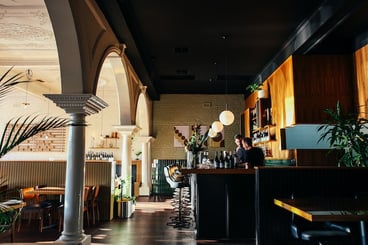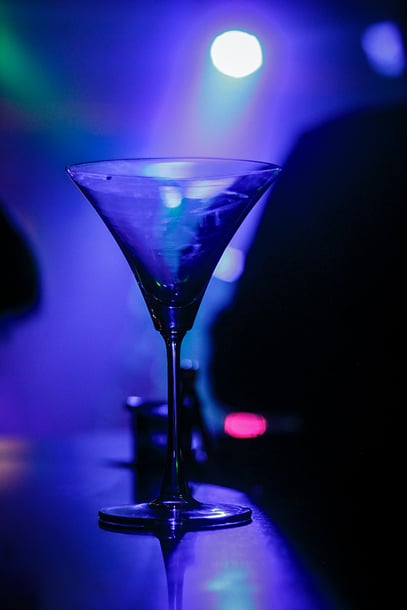Transform your cocktail bar into a spine-chilling destination this Halloween with these unforgettable ideas that will thrill your guests and boost your business.
Spooktacular Decor That Sets the Scene
 Transform your bar into a haunted haven with spooky decorations that create an eerie atmosphere. Think cobwebs, skeletons, and dim lighting. Add some fog machines and flickering candles to set the mood.
Transform your bar into a haunted haven with spooky decorations that create an eerie atmosphere. Think cobwebs, skeletons, and dim lighting. Add some fog machines and flickering candles to set the mood.
Incorporate themed decor like jack-o'-lanterns, creepy wall art, and ghostly figures. Don't forget to decorate the outside of your bar to attract passersby who are looking for a frightful night out.
Sinister Signature Cocktails to Bewitch Your Guests
Create a special Halloween cocktail menu featuring spooky drinks that are as delicious as they are eye-catching. Use ingredients like black vodka, blood-red syrups, and dry ice for a smoky effect.
Consider drinks like a Vampire's Kiss, Witch's Brew, or a Zombie Margarita. Don't forget to use themed garnishes like gummy eyeballs, candy corn, or fake spider rings to add an extra touch of horror.
Frighteningly Fun Themed Events and Entertainment
Host themed events such as a haunted trivia night, a spooky karaoke contest, or a horror movie marathon. These events will keep your guests entertained and encourage them to stay longer.
Consider hiring a DJ to play Halloween-themed music or a live band to perform eerie tunes. Interactive elements like a haunted house tour or a ghost story session can also add to the thrill.
Devilish Dress Codes and Costume Contests
Encourage your guests to dress up by hosting a costume contest with enticing prizes. Categories can include scariest costume, most original costume, and best group costume.
Offer discounts or complimentary drinks to those who come in costume. This will not only enhance the festive atmosphere but also attract more customers looking to show off their Halloween attire.
Ghoulish Marketing Strategies to Pack the House
Promote your Halloween events and specials on social media with eye-catching graphics and spooky promotional videos. Use hashtags like #HalloweenParty, #SpookyDrinks, and #HauntedBar to reach a wider audience.
Collaborate with local influencers or bloggers to spread the word about your Halloween offerings. Consider offering early bird specials or group rates to encourage reservations and ensure a full house.

 Understanding Your Target Audience
Understanding Your Target Audience

 Becoming a Bartender
Becoming a Bartender
 single item or a measured quantity” In the hospitality industry, we are sometimes faced with a decision; do we want our liquor to be poured by way of a dispensing unit? Do we want our bartenders to be “automatic” and potentially take away any flair our personable bar staff has to offer our patrons?
single item or a measured quantity” In the hospitality industry, we are sometimes faced with a decision; do we want our liquor to be poured by way of a dispensing unit? Do we want our bartenders to be “automatic” and potentially take away any flair our personable bar staff has to offer our patrons? There are many people who describe themselves as bar consultants, but simply sitting at a bar and ordering a drink does not make us specialized in the field. If you are considering a bar consultant for your business, it is a good idea to understand what they can bring to your company in terms of information.
There are many people who describe themselves as bar consultants, but simply sitting at a bar and ordering a drink does not make us specialized in the field. If you are considering a bar consultant for your business, it is a good idea to understand what they can bring to your company in terms of information. 

